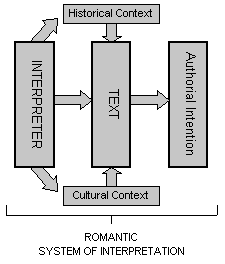K-Punk’s wonderful series on the aesthetics of Mark E. Smith and the Fall is wonderful nostalgia for any of us who spent months or years obsessed with Smith’s verbal acuity and ruminated over the cryptic lyrics (transcriptions c/o the invaluable Fall Lyrics Parade:
So R. Totale dwells underground
Away from sickly grind
With ostrich head-dress
Face a mess, covered in feathers
Orange-red with blue-black lines
That draped down to his chest
Body are a tentacle mess
And light blue plant-heads
TV showed Sam Chippendale
No conception of what he’d made
The Arndale had been razed
Shop staff knocked off their ladders
Security guards hung from moving escalatorsAnd now that is said
Tony seized the control
He built his base in Edinburgh
Had on his hotel wall
A hooded friar on a tractor
He took a bluey and he called Totale
Who said, “the North has rose again”
But it will turn out wrong(The N.W.R.A.)
“The Fall’s Pulp Modernism:” Part 1, Part 2, and Part 3.
K-punk begins with two of Smith’s avowed heroes–H.P. Lovecraft and Blake–and from there spins a chronicle of Smith’s embrace of pulp materials in the service of anti-romanticism in the tradition of Wyndham Lewis. And there’s something to this. Horror, science fiction, and conspiracy theories figure prominently in the lyrics, but they’re never properly shaped. Nazis pop up repeatedly as sinister figures precisely because they are cartoonish and inhuman; Smith is fatalistic about these matters, not humanistic. The dog-fucker of “Impression of J. Temperance” who impregnates one of his canines (hat tip to pastemob for explaining this to me many years ago) is clearly on the other side of normal, and so is his offspring:
The next bit is hard to relate.
(There are no read-outs for this part of the track.)
The new born thing hard to describe
Like a rat that’s been trapped inside
A warehouse base, near a city tide
Brown sockets, purple eyes
And fed with rubbish from disposal barges brown and covered(Impression of J. Temperance)
Even “Spectre Vs. Rector,” one of the more outright narrative pieces, turns abruptly when Spectre possesses the rector and two more characters (the Inspector and the Hero) have to show up to finish the storyline. Yet I don’t see the modernism in this. Smith ladles on Gysin/Burroughs-esque cut-up techniques and Artaud-esque writing processes, but what results is not modernism, not even the collage and nonsense modernism of Dada and surrealism. The psychology and historicism of high modernism doesn’t exist in his lyrics, but neither do the word-poems of Tzara and Huelsenbeck. Smith’s referents are slippery, but with the exception of things like “Levitate,” where he slips into outright language poetry, he remains attached to Blake’s idea of language as invocation, and not as reality in itself. When K-punk says:
If pulp modernism first of all asserts the author-function over the creative-expressive subject, it secondly asserts a fictional system against the author-God. By producing a fictional plane of consistency across different texts, the pulp modernist becomes a conduit through which a world can emerge. Once again, Lovecraft is the exemplar here: his tales and novellas could in the end no longer be apprehended as discrete texts but as part-objects forming a mythos-space which other writers could also explore and extend.
I would argue the opposite. When Lovecraft goes on and on about how inexpressible his horrors are, and when Smith invokes Nazis and spectres, the world does not emerge, but instead it subsumes. The disorganization and cut-ups are not manifestations of authorial process as with Dada, but mimetic representations of a reality that corrupts language. (K-punk’s reference to Smith as “channeling” is apt, but again, I think the flow goes the other way: it pulls the listener rather than pushes.) I do not see Joyce in these words. If I was going to trace a lineage, it would be from Blake to Baudelaire to Hofmannsthal to Rilke to Pynchon and others who have taken up the pre-modern mantle. Anti-romantic, certainly, but hardly anti-Romantic. The world triumphant over the word, represented immanently in the broken, strained language of visionaries. Blake, Coleridge, Byron. Like so:
Hail the new puritan
Out of hovel, cum-coven, cum-ovenAnd all hard-core fiends
Will die by me
And all decadent sins
Will reap discipline(New Puritan)
